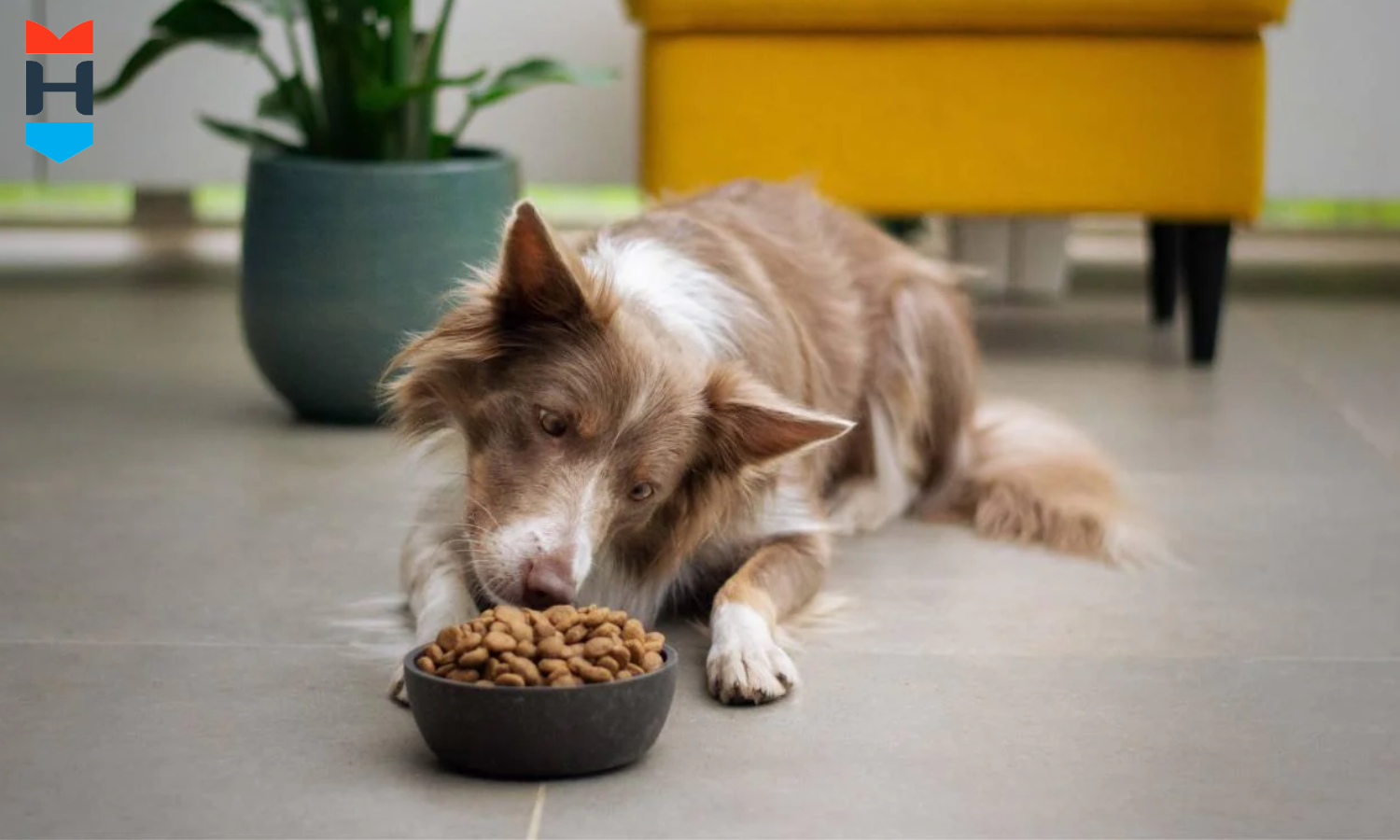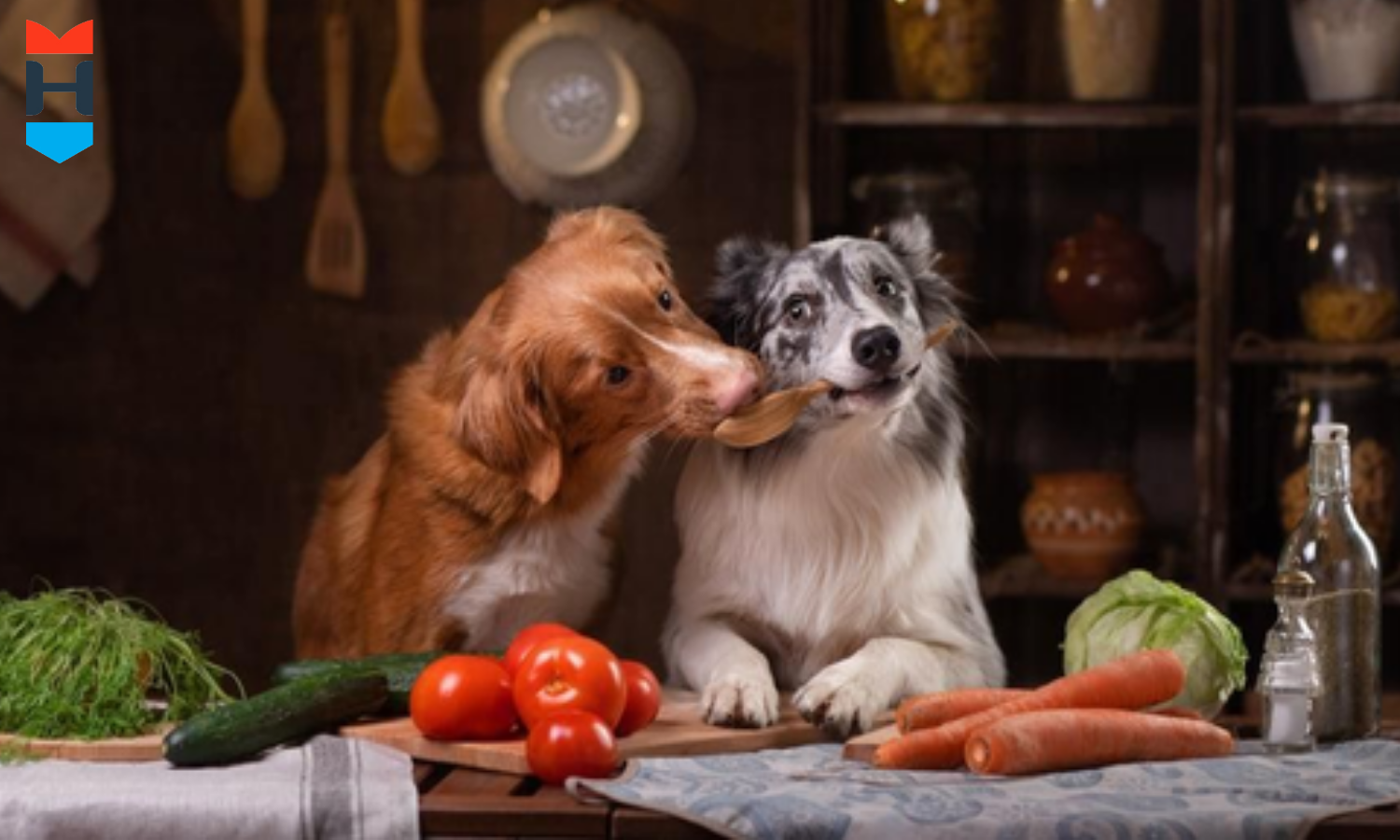According to Statista, almost 8 million Germans don't eat meat. That's 10 percent of the country's total population, who choose not to eat meat and fish, and in some cases, all animal by-products.
Some do it for health reasons. Others for ethical or religious reasons. Regardless, a vegetarian or vegan diet has its advantages and disadvantages—and this also applies to the pets whose owners choose this diet.
Benefits of a vegan or vegetarian diet for dogs
The good news for anyone who wants to feed their dog a vegetarian or vegan diet? It's doable. And if your dog suffers from allergies, this could also be the answer to some of their suffering.
After fleas, the most common cause of skin allergies in dogs is a food allergy—often to a meat protein such as beef, chicken, or lamb. A vegetarian or vegan diet that eliminates meat could eliminate these problems—and other medical issues such as liver disease and kidney stones. It also reduces the carbon footprint. As long as you carefully monitor your furry friend's nutrient intake in consultation with their veterinarian and ensure a balanced diet, a vegetarian or vegan lifestyle is a viable option. However...
Disadvantages of a vegan or vegetarian diet
A vegetarian or vegan diet has its pitfalls - and can even be dangerous.
Before changing your dog's eating habits, you should consult a veterinarian who is familiar with special diets and ensure that your dog visits the vet more often to detect potential problems early.
It may seem harmless to share your dietary habits with your dog (after all, we're both omnivores), but the reality is that humans and dogs are very different creatures with very different needs. If these needs aren't met, the consequences can be harmful—or even fatal.
If you plan to breed your dog, a vegetarian or vegan diet is a no-go—so plan ahead. If you choose an alternative diet for your dog, make sure you buy food with a nutritional content recognized by the Federal Office of Consumer Protection and Food Safety (BVL).
And of course, a well-intentioned vegetarian or vegan diet is of no use if your dog doesn't eat it (or doesn't eat enough) and suffers from a lack of essential nutrients - here, too, careful monitoring and regular check-ups are essential.
Store-bought vs. homemade dog food
The choice is yours! Dog parents who have chosen a vegetarian lifestyle for their furry friends should ensure that their food provides all the necessary nutrients. Our vegetarian food provides just that.
And for those interested in a DIY approach? Vegan blogger Lindsay Nixon feeds her pugs a balanced bowl of beans or lentils with finely chopped raw vegetables, pumpkin or squash, and brown rice. PETA offers a tasty peanut butter version with rice and quinoa, lentils, sweet potatoes, peanut butter, and supplements to fill in the gaps.
Conclusion
A vegetarian or vegan diet is possible, but requires much more effort to ensure your dog is eating a healthy, balanced diet that will lead to a healthy and balanced life. The decision shouldn't be taken lightly and should be well-considered and justified—but ultimately, it's an option that can be considered together with your veterinarian (and, of course, your dog).




Leave a comment
All comments are moderated before being published.
This site is protected by hCaptcha and the hCaptcha Privacy Policy and Terms of Service apply.